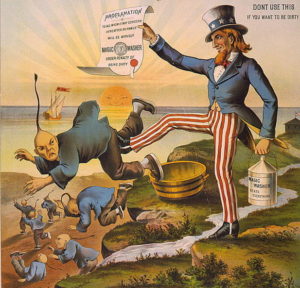Why Chanel’s Asian-ness Matters

Posted by Hannah Bae
September 23, 2019
People v. Turner has been widely deemed a failure of justice since the Stanford University attacker’s sentencing three years ago. Brock Turner was given six months in jail—of which he served only half—and three years of probation. His sentencing continues to be used as an example of white privilege and rape culture today.
Recently, the sexual assault survivor from the case revealed her identity.
Her name is Chanel Miller. Chanel is Asian.
Since the former Emily Doe’s identity was kept a secret from the public, this part of her identity went unrecognized. Even now, at the time of writing, I haven’t seen any major media outlets discussing why Chanel being Asian matters.
Why is it important?
Because her Asian-ness adds another critical layer to consider when looking at his motivations, the judge (who was later recalled in 2018 and recently dismissed from his job as a high school tennis coach), the sentence, and how they interact with larger systems. When the news broke and I saw her face for the first time, as a fellow Asian woman, my mind jumped to one question immediately: Would his sentencing have been so light if Chanel had been white?
The heartbreaking answer is most likely not. Not only would whiteness have made the judge take the case more seriously, but Asian bodies have had a long history of being fetishized and vilified in America.
Examples of this include:
- The Page Act of 1875, introduced by Republican Representative Horace Page, barred East Asian women, particularly Chinese women, from entering the United States. The law, under the guise of anti-prostitution, was justified by the characterization of East Asian women as “immoral.”
- A California Supreme Court case from the same year would then refer to Asian women as “lewd and debauched women” (Chy Lung v. Freeman).
- The Page Act set the groundwork for legalizing other acts of exclusion, such as the infamous Chinese Exclusion Act of 1882 and the Immigration Act of 1917, also known as the Asiatic Barred Zone Act. Xenophobia and fear of “Yellow Peril” swept the nation, leading to increased lynchings and disenfranchisement of Chinese people.
- Contemporary portrayal of Asian women in mainstream art, media, and pornography continues to maintain sexual stereotypes.
The continued hypersexualization of Asian women, in conjunction with stereotypes of submission and exoticism, perpetuates objectification while ignoring the real harms and violence that results. I have experienced these consequences. I know of too many other Asian women who have also experienced these consequences. In our circles, these questions linger in our minds:
Would they wonder about the orientation of our vaginas if we were not Asian women? Would they still offer variations of “me love you long time” if we were not Asian women? Would they subjugate us, and think we enjoyed it if we were not Asian women?
This is the historical and contemporary context in which Chanel’s case exists. Her unconscious body was knowingly violated by a white man who felt that he had a right to it. Not her body as a woman, not her body as an Asian, but her body as an Asian woman. The legacies of imperialism, fetishization and objectification of Asian women are still insidiously present, appearing as sexual violence and horrific injustice against us.
Turner’s sentencing does not exist in a vacuum:
Would he have gotten six months if he wasn’t a man? Would he have gotten six months if he wasn’t white? Would he have gotten six months if he wasn’t rich?
These are the important questions that we have already considered.
Now, we must also explore if he would have gotten six months if Chanel was not an Asian woman.
Want to read more on this issue? Click here, here, or here for additional resources.
Leave a Reply
You must be logged in to post a comment.



